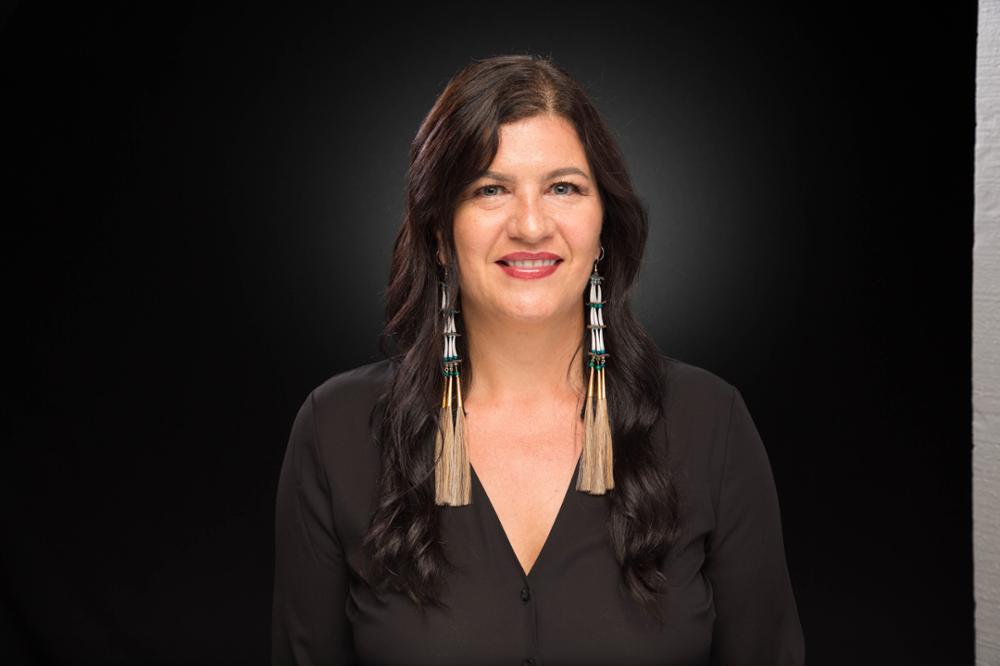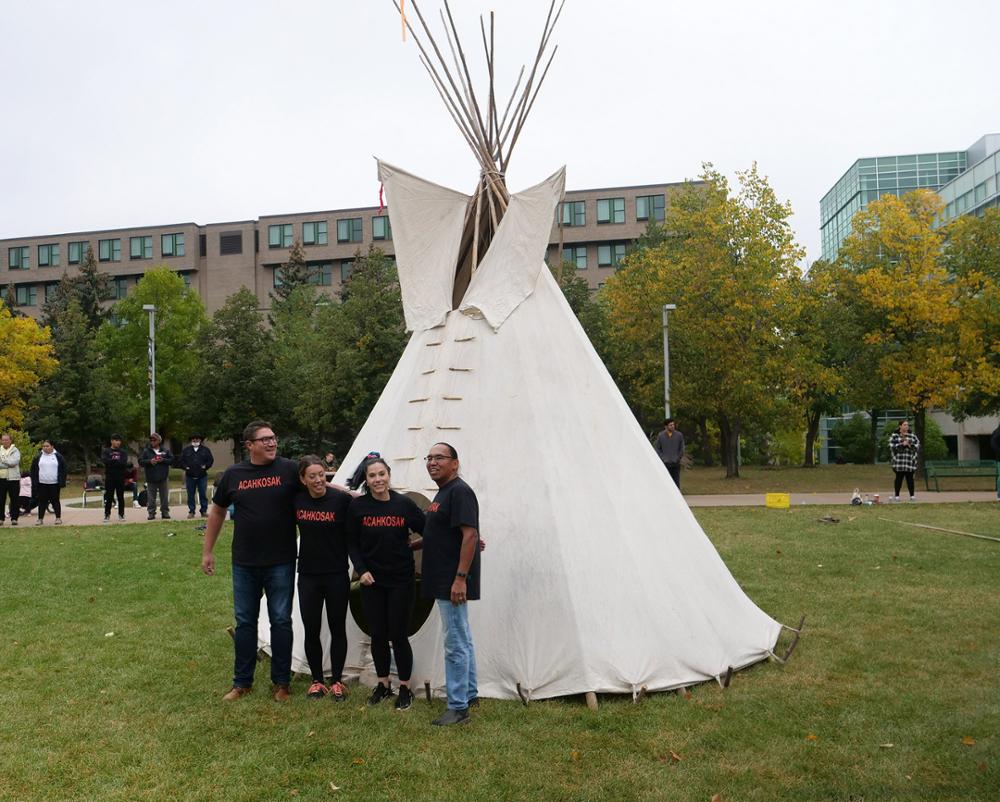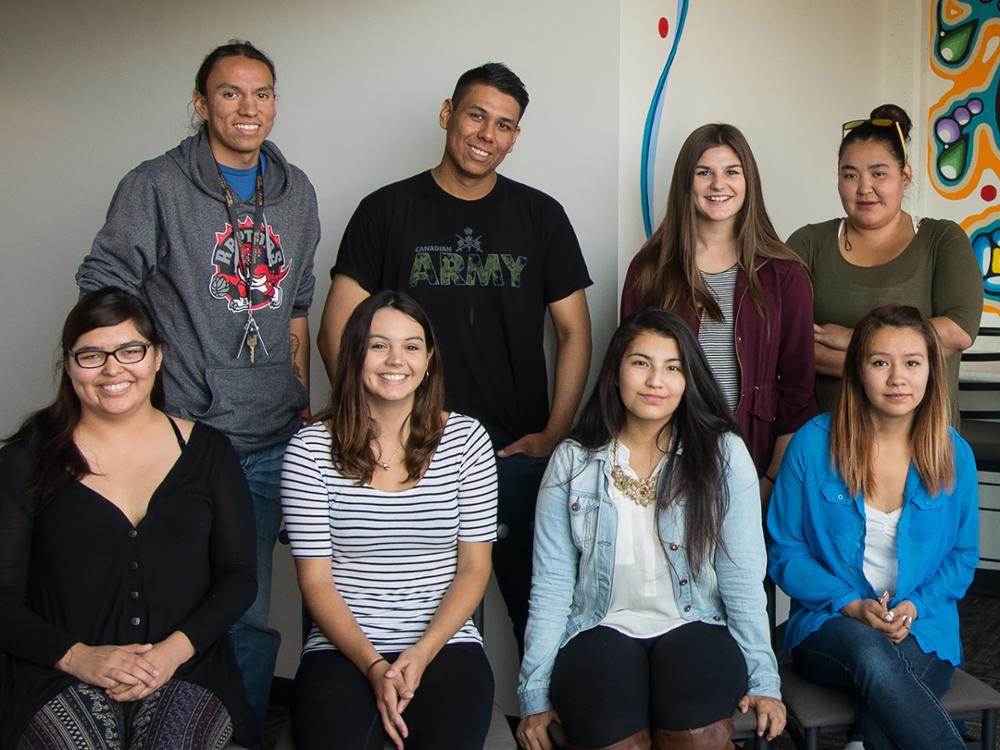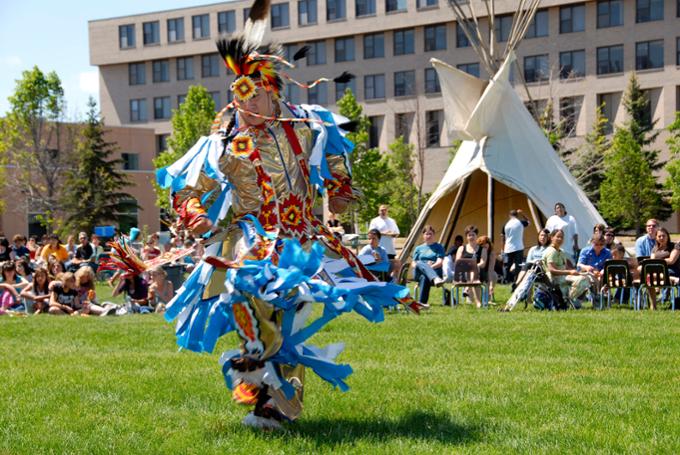The University of Regina is developing an Indigenous Strategic Plan to help further support academic Indigenization, Indigenous-centred research, governance and administration, student success, and community engagement.
We want to ensure the University’s practices, policies and processes help us improve in providing a welcoming and safe campus for current and future Indigenous students, and for all our relations.
Lori Campbell, Associate Vice-President, Indigenous Engagement
Building on the University of Regina’s history as a leader in Indigenous engagement and education, the Office of Indigenous Engagement, led by Lori Campbell, Associate Vice-President, is heading up the plan’s development. The strategic plan will identify actions to break down barriers and empower Indigenous peoples and communities by reviewing University practices, policies, and processes.

Acknowledging and redressing past wrongs and responding to the Truth and Reconciliation Commission of Canada: Calls to Action that are applicable to the University and its faculties are key to the process of developing the Indigenous Engagement Strategic Plan.
“The creation of this Indigenous engagement strategy is in alignment with the University’s 2020-2025 Strategic Plan - All Our Relations: kahkiyaw kiwâhkômâkaninawak. The process is inclusive,” says Campbell. “We are talking with students, faculty, staff, Treaty 4 and 6 First Nations, and Métis peoples on how we can build on and improve our relationships with Indigenous communities, acknowledge truths, and advance Indigenous excellence.”
An advisory group consisting of students, faculty, staff, and Indigenous Knowledge Keepers has been created to support the development of the plan and, over the next several months, opportunities for sharing ideas with the group will be available.
One of these opportunities is an open house where attendees will be encouraged to participate in a drop-in engagement session, where booths will be available to provide your input regarding the plan (There’s even an opportunity to collect stamps on a passport for a chance to win a door prize!).
Attend the Indigenous Engagement Strategic Plan Open House
Wednesday, February 15, 2023
10 a.m. - 3 p.m.
The University of Regina
Research and Innovation Centre Atrium (main floor common area)
“In developing an Indigenous Engagement Strategic Plan we are reaching out to Indigenous students and communities to share their experiences and knowledge and to guide us on this journey,” says Campbell.
“We want to ensure the University’s practices, policies and processes help us improve in providing a welcoming and safe campus for current and future Indigenous students, and for all our relations.”

The University of Regina Here are just a few of the ways the U of R has undertaken to make the University a more welcoming place for Indigenous students, faculty, and staff:
- The establishment of an Associate Vice-President (Indigenous Engagement) position that is responsible for promoting and leading Indigenization efforts at the University;
- The Office of Indigenous Engagement serves the entire University community, including its three federated colleges, the First Nations University of Canada, Campion College, and Luther College;
- Bringing Indigenous ways of knowing into course work, exposing students to the work of Indigenous writers and scholars;
- Delivering workshops and presentations to faculty on ways to Indigenize their curriculum;
- Indigenous students at the U of R are supported by the ta-tawâw Student Centre which serves as a place for student empowerment, identity, community connections and Indigenous ways of knowing and learning.
- Housing Services, in partnership with the ta-tawâw Student Centre, offers the Neekaneewak Living Learning Community

U of R Housing Services, in partnership with the ta-tawâw Student Centre, offers the Neekaneewak Living Learning Community. Credit: University of Regina
About the University of Regina
Set in the heart of the Canadian prairies we are a comprehensive, mid-sized university where the opportunities are as limitless as the horizon. Our campuses are on Treaty 4 and 6 - the territories of the nêhiyawak, Anihšināpēk, Dakota, Lakota, and Nakoda peoples, and the homeland of the Michif/Métis nation. It is our responsibility to strengthen relationships with Indigenous communities to build a more inclusive future for all. Our three federated colleges, 10 faculties, 25 academic departments, and 18 research centres foster innovative research with practical and theoretical applications. We are committed to cultivating the potential of our 16,000 students and supporting their health and well-being. We take learning beyond the classroom through work and volunteer experiences to develop career-ready graduates.
Let’s go far, together.
